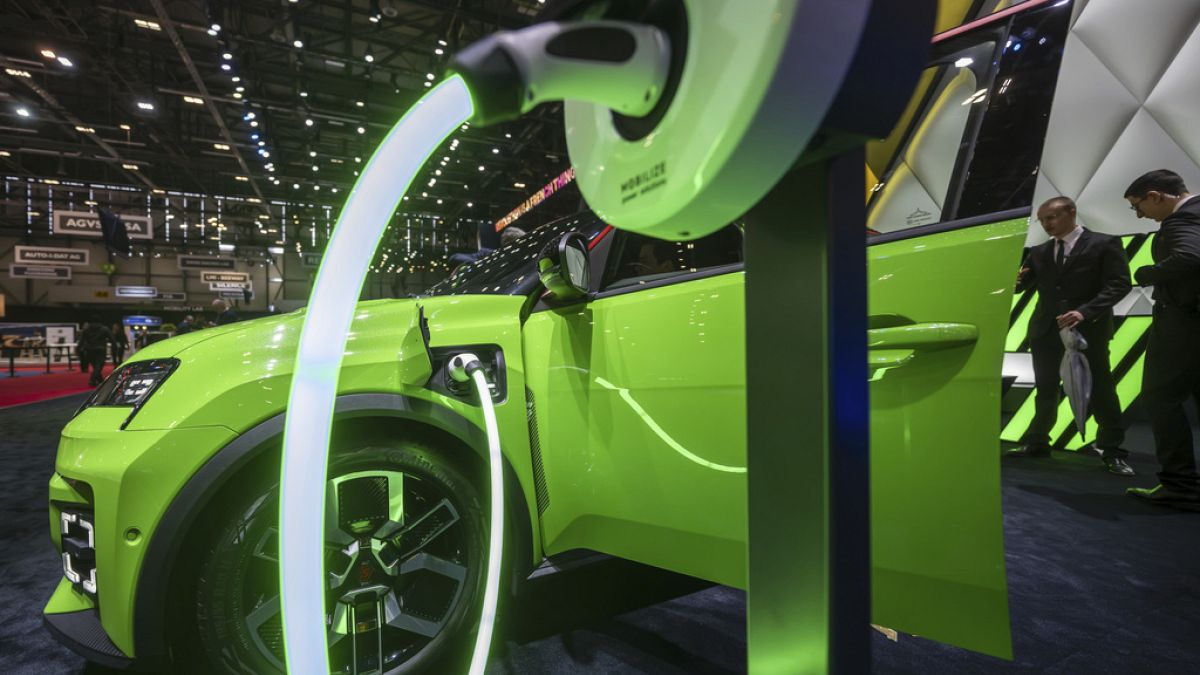
Automobile manufacturers such as Volkswagen and Stellantis are facing the challenge of weak demand, especially in the electric vehicle market. According to reports, in March of this year, sales of passenger cars in Europe decreased by 2.8%, marking the largest decline since July 2022 and the first decline this year. Not only were electric vehicles affected, but the sales of vehicles in the entire European Union decreased by 5.2% year-on-year.
Firstly, the downward trend has affected major markets, including Germany (-6.2%), Spain (-4.7%), Italy (-3.7%), and France (-1.5%). The market downturn and the negative impact of the Easter holiday on sales are the reasons for this decline. It is worth noting that European governments have brought 392.2 billion euros in taxes to the automotive industry, but consumer preferences for car types have changed. The market share of pure electric vehicles decreased from 13.9% last year to 13%, while the share of hybrid vehicles increased from 24.4% to 29%. Meanwhile, the combined market share of gasoline and diesel vehicles decreased from 51.8% to 47.8%.
Secondly, this decline highlights the various pressures faced by car manufacturers, including rising interest rates, slowing economic growth, and gradually phasing out generous subsidies to stimulate demand for electric vehicles. Volkswagen, Mercedes Benz Group, and Tesla all reported a decline in electric vehicle sales in the first quarter of this year. This trend is prompting some traditional car manufacturers to reconsider when to gradually phase out internal combustion engines, while other car manufacturers are backing away from their electric vehicle goals. For example, Mercedes Benz has postponed its sales forecast and expects electric vehicle sales to remain below half of sales for a longer period than expected.
Among them, Tesla has been most affected by the economic slowdown, and this week the company announced that it will lay off more than 10% of its global employees. Last month, sales of electric vehicles in Italy decreased by 34% due to customers delaying purchases due to expectations that the government may introduce new subsidies. Despite manufacturers such as Volkswagen introducing their own rebates to offset the impact of government aid cuts, sales of electric vehicles in Germany still fell by 29%. Although a series of new electric vehicle models have attracted more buyers in markets such as France and the UK, the lack of charging infrastructure remains one of the obstacles to the wider adoption of electric vehicles.
Although many European consumers are clearly turning to electric vehicles, there are still many who are not ready to give up internal combustion engine cars. The demand for diesel models has significantly decreased, but some drivers are choosing gasoline alternatives instead of turning to electric vehicles. Some customers are starting to choose models equipped with both batteries and internal combustion engines: last month, sales of plug-in hybrid vehicles increased by 0.7%, surpassing not only pure electric vehicles but also gasoline models. The sales of gasoline cars in the region decreased by 8%, while the registration of diesel cars decreased by 18%.
At the same time, excess production has led to some electric vehicles piling up at logistics ports, and car factories have also begun to reduce production to cope with this situation. Alexander Marian, Partner and Managing Director of Alex Partners, pointed out that "European countries frequently modify electric vehicle subsidy policies, causing confusion among consumers and car manufacturers. To continue promoting the development of electric vehicles, continuous policy promotion is needed." According to the European Automotive News, the sales growth rate of the European electric vehicle market is significantly slowing down. The continuous decline in government subsidies, the increase in insurance and maintenance costs, and the inadequate charging facilities have all affected consumers' willingness to purchase. At the same time, excess production has also led to some electric vehicles piling up at logistics ports, and car factories have begun to reduce production to cope with this situation.
Overall, high costs and insufficient infrastructure have limited the development of the European electric vehicle market. Volkswagen Group and Stellantis have stated that the market outlook for 2024 will be very challenging due to weak global demand for electric vehicles, intensified competition from Chinese competitors, ongoing cost pressures, and geopolitical tensions.

The 2025 US holiday shopping season was supposed to be a double celebration for both merchants and consumers. However, the reality is shrouded in a "bill chill."
The 2025 US holiday shopping season was supposed to be a do…
On November 5th, the US federal government entered its 36th…
JPMorgan Chase CEO Jamie Dimon recently made important asse…
When the US Senate passed a resolution with 51 votes in fav…
Recently, according to Teslarati, Tesla announced that the …
Nikkei Group, the Japanese business information giant that …